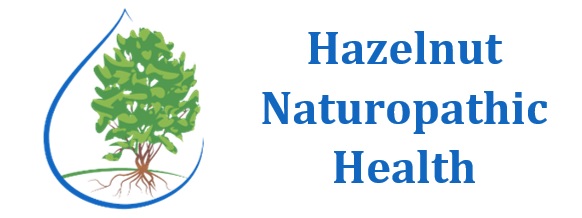
Plant-Based Nutrition for Everyone
The What, Why, & How of Plant-Based Nutrition for Everyone
Here's something that might surprise you: not all plant-based diets require elimination of meat. From "meaty" to minimal to meat-free, there are a variety of plans to choose from. And whatever plan you choose, you can be confident that your plant-based diet will help enhance fitness performance, reduce your risk for acute illness, and help protect against chronic diseases. Research shows the more fruit and vegetables you consume, the lower your chance of heart disease, cancer, and premature death. In addition, your plant-based diet will play an important part in supporting the vitality of Mother Earth and all her creatures.
Here are answers to the most frequently asked questions about transitioning to a plant-based diet.
What does Plant-Based Nutrition Mean?
This simply refers to eating more vegetation in your diet. A plant-based diet is a nutritional approach that places the focus of each meal on filling your plate with plant foods and whole foods: foods that are not processed and laden with sugars, preservatives, artificial ingredients, or other chemicals and additives. The greater the volume of plant-based and whole foods in your diet, the greater your likelihood for good health.
Examples of foods that make-up a plant-based menu:
Vegetables: spinach, kale, broccoli, collards, peppers, peas, etc.
Tubers (root vegetables): potatoes, carrots, parsnips, sweet potatoes, beets, turnips, etc.
Fruits: every color and flavor enjoyed in their natural season of the year.
Legumes & Beans: chickpeas, lentils, kidney beans, edamame, pinto beans, etc.
Nuts & Seeds: nutrient-dense essentials for any diet like almonds, cashews, flaxseed, chia seeds, pumpkin seeds, walnuts, and sunflower seeds
Whole Grains and Healthy Starches: in their whole form, such as amaranth, brown rice, millet, whole wheat, oats, barley, and even popcorn.
What is the Difference Between No Meat and Less-Meat Diets?
Vegan and vegetarian, the two most well-known diets, eliminate meat, fish, and poultry to differing degrees. Vegan diets also eliminate eggs, dairy products, and any other products that are derived from animals. However, there are vegetarian diet sub-types that allow for consuming different animal products:
- Consume dairy and egg: lacto-ovo-vegetarian
- Consume dairy, no egg: lacto-vegetarian
- Consume egg, no dairy: ovo-vegetarian
- Consume egg, dairy, fish, seafood: pescatarian
- Consume egg, dairy, fish, and limited poultry: flexitarian
Do I Have to Completely Eliminate Meat to Benefit from Plant-Based Eating?
No. A plant-based diet doesn't have to eliminate meat. Primarily, this means half to two-thirds of your plate is loaded with fruits and vegetables at each meal. The rest of your plate can have a small to moderate amount of meat and healthy fats. Meat should be organic and grass-fed whenever possible. The choice to eliminate meat is one that vegans and vegetarians often make based on personal, health, and environmental considerations. Should you choose a plant-based diet, you may still eat small amounts of meat, as well as poultry, fish, seafood, and dairy (aka flexitarian or a sub-type of vegetarianism noted above).
How Do I Begin?
- Start by eating less meat at each meal, before trying to eliminate meat completely.
- Choose tempeh, tofu, or a similar based protein as a substitute for meat. (Note: when choosing soy products, it is best to buy organic whenever possible due to higher usage of pesticides with modern farming practices)
- When plating your food, first start with fresh greens and a rainbow of fruits and vegetables.
- Finally, add a whole grain and protein to your meal, along with healthy fat (e.g., avocado, nuts)
You may want to plan meals ahead of time so that you can carefully balance nutrients at each meal (that is, making sure you get sufficient protein, carbs, healthy fats and a variety of nutrients throughout the day). Remember each different color of fruit or vegetable provides different vitamins and minerals. Try your best to eat a rainbow of colors each day.
Are Packaged Meat-Free Meals a Good Choice?
Packaged meatless meals are available and may be a good option, in moderation. Grocery store shelves are filled with these processed plant-based "fortified with" foods. But buyer beware: many of these products (including the meatless burgers that are on restaurant menus) are highly processed. Highly processed means nutrients may have been damaged during processing and creating the food product. Look for foods that have a short list of ingredients, most of them being plant-derived, and free of chemical additives, hydrogenated oils, and emulsifiers.
Will I Get Enough Nutrients with More Plant-Based Nutrition?
When you opt for more plant-based eating, be adventurous in trying new foods and different combinations of foods to help ensure that you consume the nutrients essential for optimal health, including:
- B vitamins, particularly B12 and B6
- Calcium, zinc, selenium, and iron
- Essential Fatty Acids (e.g. omega-3s)
- Protein and fat in an amount suitable for your age and activity level
To help you establish a plant-based diet that meets your specific needs, talk to your holistic practitioner to assess your nutrient status. This may involve running blood tests or other assessments to check for nutrient deficiencies in your diet. If you'd like to find out more before committing to an appointment, Dr. Blandford offers a free 15 minute consultation to learn more about naturopathic and holistic health options.
Resources:
1. Aune D, Giovannucci E, Boffetta P, et al. Fruit and vegetable intake and the risk of cardiovascular disease, total cancer and all-cause mortality-a systematic review and dose-response meta-analysis of prospective studies. Int J Epidemiol. 2017;46(3):1029-1056. doi:10.1093/ije/dyw319
2. Forks Over Knives:"Beginner's Guide to a Plant-based Diet." https://www.forksoverknives.com/how-tos/plant-based-primer-beginners-guide-starting-plant-based-diet/
3. The National Heart Foundation of New Zealand. Heart Foundation: "Plant-based, Vegetarian and Vegan Diets" https://www.heartfoundation.org.nz/wellbeing/healthy-eating/nutrition-facts/plant-based-vegetarian-vegan-diets
4. Harvard Health Newsletter: "What is a Plant-based Diet and Why should You Try It?" https://www.health.harvard.edu/blog/what-is-a-plant-based-diet-and-why-should-you-try-it-2018092614760 Accessed 08/28/2021
5. USNewsHealth.com: "Health Buzz: How You Can Ease Into a Vegan Diet." Posted by David Oliver (31 May 2018): https://health-usnews-com.cdn.ampproject.org/c/s/health.usnews.com/wellness/health-buzz/articles/2018-05-31/how-you-can-ease-into-a-vegan-diet?context=amp
6. The Vegetarian Society. https://www.vegsoc.org/
Image Credit: disobeyart/freepik.com

Leave a Comment
(0 Comments)